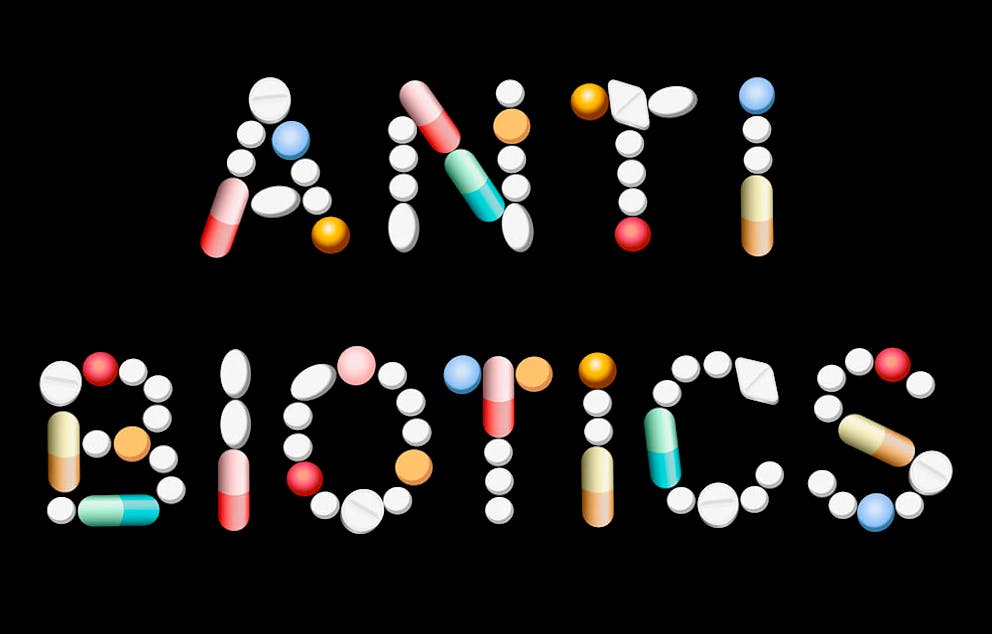Common Nutrient Deficiencies Caused by Drugs that You Should Know About
Exploring Nutrient Deficiencies Caused by Drugs
Nutrient deficiencies caused by drugs are an often overlooked aspect of pharmaceutical side effects. Prescription meds, while helpful in treating various issues, can cause nutrient exhaustion and possibly serious health problems if not monitored correctly.
Learn about the common nutrient deficiencies induced by different classes of drugs. Discover the metformin-B12 connection for those with type 2 diabetes, the loss from diuretics, and replacement therapy (HRT) related to nutrition deficiency.
Understanding these drug-induced nutrient depletions could be instrumental in managing your health more effectively when taking prescription medications.
Nutrient Deficiencies Caused by Antacids
Antacids neutralize stomach acid and relieve heartburn, but they can also mess with your nutrient levels. These meds reduce stomach acidity, which affects the absorption of essential vitamins and minerals.
The most common nutrient deficiencies caused by antacids include iron, B12, vitamin D, calcium, zinc, and folic acid. Your body needs these goodies for immune support, bone health, and energy production.
Iron: Crucial for oxygen transport. Deficiency may lead to anemia or fatigue.
Vitamin B12: Key for nerve function. Low levels could cause neurological problems that might be mistaken for other health issues.
Vitamin D & Calcium: Vital for bone health. Not enough of these may up your risk of osteoporosis or fractures.
Zinc and Folic Acid: Essential for cell growth, division, and DNA synthesis.
Check your nutrient levels with regular blood tests if you're popping antacids like candy. Consider eating a diet rich in these nutrients or taking supplements under medical supervision. Remember, proper nutrition is always crucial.

Antibiotics and Their Impact on Micronutrients
Antibiotics are powerful medications that indiscriminately eliminate bacteria, disrupting the delicate balance of our gut microbiota and leading to a depletion of essential nutrients such as calcium, magnesium, iron, and various B vitamins including B1, B2, B3, B5, B6, and B9.
These nutrients are vital for various bodily functions; calcium supports bone strength, magnesium aids in muscle and nerve function, iron facilitates oxygen transport, and vitamin K1 is crucial for blood clotting—a process essential for wound healing.
B vitamins play key roles in energy metabolism and maintaining healthy skin, hair, eyes, and liver function, ensuring our bodies function optimally.
To replenish beneficial gut bacteria and counteract nutrient depletion caused by antibiotic use, incorporating probiotic-rich foods like yogurt and fermented vegetables into your diet can help restore gut health and support recovery.
Maintaining a balanced and nutrient-rich diet is essential during antibiotic treatment to support the body's healing process and prevent potential nutrient deficiencies, promoting overall health and well-being.
How Antidepressants Mess with Your Nutritional Levels
They lift your mood but deplete your nutrients. Take CoQ10, for example. These meds can deplete it, leaving you low on energy.
CoQ10 is an antioxidant your body needs for growth, maintenance, and energy production. But certain antidepressants can throw it off balance.
And that's not all. Magnesium and B vitamins like B2, B6, B9, and B12 can also take a hit. Magnesium helps with muscle contractions and nerve signals, while B vitamins convert food into fuel for energy.
And B12? It's crucial for making red blood cells. If you're taking antidepressants, be sure to monitor your nutrient levels.
Magnesium: regulates muscles and nerves and does over 300 other essential things.
B vitamins: they turn food into fuel, keeping you energized.
Vitamin B12: low levels can leave you feeling weak and tired.
If you're taking antidepressant medication, it's essential to ensure you're not overlooking these essential nutrients. Consult with your healthcare provider about potential supplements or dietary adjustments to address any nutritional gaps.
Vitamin C Depletion from Antipsychotic Drugs
Antipsychotic medications can impact both your mental well-being and your levels of vitamin C, creating a challenging situation.
Vitamin C plays a crucial role in supporting overall health, acting as a powerful antioxidant, aiding in wound healing, and bolstering the immune system. However, antipsychotic drugs can deplete this essential nutrient more rapidly than expected.
Certain antipsychotics are particularly notorious for draining your vitamin C reserves, potentially leading to symptoms like fatigue, depression, and in severe cases, scurvy.
To safeguard your health while taking antipsychotic medications, prioritize consuming vitamin C-rich foods.. Considering a vitamin C supplement under medical guidance can also be a prudent step to prevent deficiencies.
Always remember that supplements should complement, not replace, a balanced diet and proper medical supervision.

Nutrient Imbalance Caused by Anti-Cholesterol Meds
Statins, commonly prescribed to lower cholesterol levels, can disrupt the balance of essential nutrients in your body, causing potential deficiencies.
Critical nutrients like calcium, folic acid, and vitamins A, D, E, and K, as well as CoQ10, EPA, and DHA, vital for optimal brain function, may be inhibited by statins, posing concerns for overall health.
Brain Function Suffers Without EPA & DHA
Omega-3 fatty acids, specifically EPA and DHA, play a crucial role in brain health, acting as superheroes for cognitive function.
However, statins can diminish their levels, potentially leading to cognitive issues and compromising brain function.
These disruptions underscore the importance of monitoring nutrient levels and considering supplementation under medical guidance when taking statins.
CoQ10 Depletion and Energy Levels
Statins, medications prescribed to lower cholesterol, can deplete CoQ10, an antioxidant crucial for cellular energy production, resulting in fatigue and decreased vitality.
Additionally, statins may disrupt the levels of essential vitamins such as vitamin K, vital for blood clotting, and vitamins A, D, and E, which play pivotal roles in vision, bone health, and skin integrity.
Folic acid, necessary for DNA repair and cell division, is also affected by statins, further highlighting the medication's interference with essential nutrients and bodily functions.
If you're taking statins, it's essential to discuss potential nutrient deficiencies with your healthcare provider, who may suggest dietary adjustments or supplements to mitigate these effects and maintain overall health and well-being.
Effect on Mineral Balance
Prescription medications can disrupt your body's mineral balance, leading to depletion of essential nutrients such as calcium, magnesium, and vitamin B1, potentially resulting in deficiencies and health complications.
Magnesium, vital for numerous enzymatic functions, and calcium, crucial for bone and muscle health, are particularly susceptible to depletion by these medications, posing risks to overall well-being.
Vitamin B1 (Thiamine): Converts food into energy and helps maintain proper nerve function.
Magnesium: An essential mineral involved in 300+ biochemical reactions.
Calcium: A critical mineral for strong bones and teeth and for keeping your heart rhythm in check.
It's essential to address these imbalances promptly to prevent adverse effects like weakened bones and low energy levels, especially with prolonged medication use potentially causing chronic nutritional deficits.
Consulting with your healthcare provider about the risks of nutrient depletion associated with medication use is crucial, and they may recommend dietary adjustments or supplements to mitigate these effects and maintain optimal health.
Metformin-B12 Connection
For those with type 2 diabetes, they have likely been prescribed metformin to manage their blood sugar levels; however, long-term use of this drug can deplete vitamins B12, B1, and B9. While this drug controls blood sugar levels, it also affects nutrient intake.
Research shows that long-term use of metformin can cause deficiencies in vitamins B12, B1, and B9. These nutrients are essential for maintaining healthy nerve activity, producing red blood cells, and sustaining energy metabolism.
A deficiency can lead to anemia, fatigue, depression, and even neurological issues.
The good news is that you can manage these deficiencies easily:
Vitamin B12: Get it from meat, fish, poultry, and dairy. Vegetarians or vegans can try a B12 supplement.
Vitamin B1 (Thiamine): Find it in nuts and meats.
Vitamin B9 (Folic Acid): Get plenty from leafy green vegetables and consider a folic acid supplement if needed.
Remember, it's not just about managing diabetes but also about maintaining overall nutritional balance for optimal health. Always talk to your healthcare provider before making any dietary changes or taking supplements to avoid complications or medication interactions.
Loss From Diuretics
Diuretics help rid your body of toxins, but also flush away the good stuff like magnesium, vitamin K, and zinc.
These diuretics can disrupt your calcium levels, causing potential issues.
Magnesium is vital for various bodily functions, supporting nerve function and bolstering the immune system. Without enough magnesium, you may be at risk of serious conditions like heart disease or diabetes.
Vitamin K: Essential for blood clotting and maintaining bone health. A shortage of vitamin K can lead to excessive bleeding or weakened bones, so it's crucial to ensure sufficient intake.
Zinc: Acts as a guardian for your immune system and aids in wound healing. Don't overlook its importance, as its absence could compromise your body's defense mechanisms.
Magnesium: Indispensable in over 300 biochemical reactions, from energy production to muscle function. Its presence is crucial for maintaining optimal bodily functions.
Disruptions in calcium balance caused by diuretics may contribute to kidney stone formation and cardiovascular issues, emphasizing the importance of monitoring nutrient levels and addressing any imbalances promptly.
Replacement Therapy (HRT) and Nutrition Deficiency
HRT can disrupt your nutrient intake, much like a break-up would with folic acid, B6, and B12. It also messes up the electrolyte balance in your body, making it hard for it to function correctly.
Folic Acid Depletion
HRT can lower your folic acid levels that DNA and blood cells depend on. This can cause anemia and other health issues.
Vitamin B6 & B12 Deficiencies
Vitamin B6 and B12 levels may also decline with HRT, impacting brain function, nerve health, and metabolism. Depletion of these vital vitamins can lead to cognitive issues and nerve dysfunction.
Electrolyte Imbalance
HRT can also disrupt electrolyte balance by affecting sodium, potassium, magnesium, and other essential electrolytes crucial for nerve, muscle, and heart function.
If undergoing HRT, it's important to closely monitor your nutrition to ensure overall health during hormonal fluctuations of menopause.
Regular check-ups and the possible addition of supplements can help maintain optimal health while managing the hormonal fluctuations associated with menopause.
Conclusion
Be aware of the potential nutrient deficiencies caused by drugs. Antacids can deplete essential nutrients like calcium, magnesium, and vitamin D.
Antibiotics can impact micronutrients such as vitamins B12 and K. Antidepressants may affect nutritional levels, including folate and omega-3 fatty acids.
Watch out for nutrient imbalance.! Anti-cholesterol medication can affect your brain by depriving you of EPA & DHA and depleting COQ10 for cellular energy production. Diuretics and hormone replacement therapy (HRT) can also contribute to nutrient deficiencies.
Previous blog
Adrenal Body Type: What It Is and How to Fix ItNext blog
The Best Way to Recover from a Cheat DayTags

Popular
08/21/2024
55.7K views
02/23/2025
46.8K views
11/18/2024
281.1K views
03/18/2024
11/21/2022




